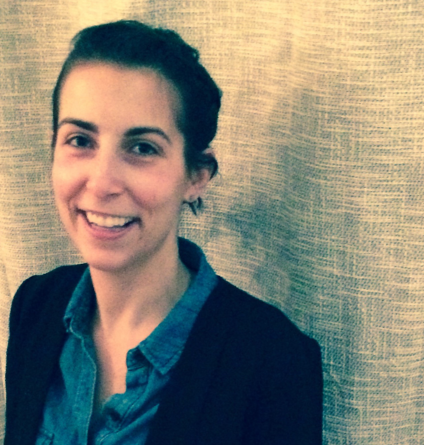TORq: A Real-Time Surgical Scheduling Solution

During her time as a surgical device representative, Babson graduate student Joanna Geisinger MBA’17 spent the majority of her time driving to a surgery that she would later find out had been rescheduled, or waiting at a hospital for hours because they were behind schedule.
The solution? Torq Interface—a HIPAA-compliant, automated platform which exports real-time, up-to-date surgical schedules from hospital systems directly to appropriate device representative’s phone.
The Problem
Medical device representatives are present in the operating room for 37 percent of all surgeries–that is, 31 million procedures each year in the U.S.
They are responsible for bringing the necessary instruments and implants for surgeries, and are required to stay to ensure they are administered as efficiently and effectively as possible.
The biggest problem lies in the scheduling.
Moving from one hospital to another in time for each surgery is nearly impossible without real-time data, as surgery schedules are naturally unpredictable and fluid.
According to the global health exchange, the inefficient process of communication between device representatives and hospitals is generating an estimated $5 billion in waste for the implant supply chain.
The Solution
TORq will provide representatives with live operating room schedules on the day of surgery, future surgery schedules, and access to the equipment pick-list in the Electronic Medical Records (EMR) system.
The day of surgery schedule allows reps to optimize work time by providing up-to-the-minute start-times for surgeries. Currently, reps waste 20 percent of work time due to this lack of information. It will also save hospitals from constant calls to the operating room, querying the progress of the surgery—a disruption that pulls nursing staff away from other patients and can cause longer operating room times.
The future surgery schedule allows reps to better plan for surgeries, and device companies to better manage their inventory.
The equipment pick-list determines what materials are in the operating room for a surgery. Allowing reps access to these lists will reduce mistakes, prevent major delays, and optimize surgical time.
The opportunity to create this solution has only now become possible due to the government mandated use of EMR systems in hospitals, and the standard API that is being pushed to be adopted by all systems by 2018.
TORq Interface is devoted to elevating the mode in which hospitals and medical device companies collaborate, by leveraging the electronic health record federal mandate and meaningful use regulations that followed. These mandates have strong armed hospitals into allowing companies like TORq to commercialize hospital data to generate value for the healthcare ecosystem.
Looking Ahead
Geisinger hopes to pilot Torq by May 2017 in the two hospitals with which she is currently building prototypes. From there, she hopes to launch in a few additional hospital systems, where the company will continue to take direction from customers to improve the product.
TORq was just selected to participate in PULSE@MassChallenge. Read more about the program
By 2018, Geisinger would like to have the product ready to scale nationwide.
Managing Her Own Schedule
From grad school, to Babson’s Summer Venture Program, to starting her own healthcare startup, Geisinger is an expert at utilizing the school’s many resources, her network, and managing her own time with the utmost efficiency.
“Babson offers a lot of classes that have allowed me to work on my business through group projects. This helped me to hash out my ideas early and turn those ideas into the company that I am now working with today,” said Joanna Geisinger. “I have also been privileged to do an independent research project with Professor Phillip Licari. Together, we looked closely at the implant supply chain and the larger issues at play surrounding the execution of TORq. Participating in the 2016 Summer Venture Program also gave me the opportunity to focus solely on my company and I was provided with a tremendous mentor, Michelle Hipwood.”
Her Advice? Gain Experience in the Industry
When asked what advice she would give fellow Babson entrepreneurs eyeing the healthcare industry, Geisinger shared:
“I would first gain experience in the industry, and then work on starting your company. It is also critical that you garner relationships you can leverage. The industry’s culture is vastly different than any other I’ve experienced, and unexpected barriers exist here that you could not otherwise predict unless you’ve already immersed yourself in the world of healthcare.”
